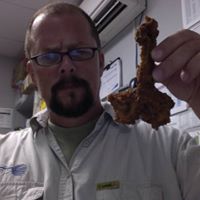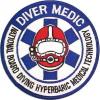Leaderboard
Popular Content
Showing content with the highest reputation on 06/03/2011 in all areas
-
Hey Westley, welcome to the City! Yeah, this is not going to work out for you brother. Not to mention I'm guessing the the 'certain criteria' will be car accidents, house fires, active arrests...all the glory stuff and none of the lift assists? It would be a sweet gig....pick the interesting calls, fire up the lights and sirens on your Toyota, show up and be heros while the hero shit is going on, leave before the non hero clean up, care, and transport begins, and skip the paperwork, and then get paid? No lift assists, no frequent fliers, none of those stupid, 'boring' calls? Hell, I think I just came in my pants! Doesn't work that way brother. You wanna go behind the yellow tape? You gotta pay to play...simple as that. Dwayne2 points
-
Had a particularly crappy shift last night (nothing super bad or major just a long drawn out one) and twords the end I was given a new found respect for the Techs and Nurses. Twords the end of the shift we have a head injury w/ neck pain call so of course its off to the nearest Trauma Center. Wasn't bad enough for Level 1 and a medivac so we ground transported to the nearest Level 2 (still is trying for 1 cert / don't know the business end of that so I digress). Just as we pull up we get hit with we are on full divert effective immediatly.... well when we called you it would have been nice to know.... Well I state my case for at least taking my patient. Intake nurse agrees but notifies us no beds were available and we probably would be in a hallway. Fine at least we are at diffinitive care and should be on our way. Partner writes up the PCR while I stay with my patient awaiting the Triage Nurse to take over care. Nothing.. great shift change. OK no big deal in a little bit things will get better. Out of the blue it seemed two CPRs come crashing through the doors.. intake nurse is shocked and tried to say divert but tell that to two seperate crews cot surfing and one riding the lightning. She hits the OS button but very few hands come (come to find out later 4 nurses called in sick). The main ER Doc see me standing by my patient and just says here now (now I know how my dog feels) I tell my partner to stay with the patient and get to the Doc's side. Basically I was just another set of hands to help out with compressions and bagging. No big deal at least it isn't in the back of a moving rig. After a short time some RNs show up and I am out of the way back with my patient. Again I go to the intake nurse and remind her we are still there. I get the drop the PCR in the box and go. Ummmm NO!!! I have a patient with a head injury, in full C-spine, on O2, in and out of it so NO I am not just leaving the patient in the hallway until I get a higher level of care. Guess at that point my patient advocacy balls got twisted and the CMA abandonment light went off. She says fine someone will be over soon. Told my partner to grab a cup of coffee we will be a while. Figured with two codes back to back Im at the bottom of the toteum pole. Well fast foward 2 1/2hrs, an O2 tank later, several more sets of vitals, PMSes, and reassesments on my piece of tape and I finally get a Triage Nurse. This Nurse couldn't A)believe I would stay that long and have my rig OOS B)Not through a fit and C)continue with O2 therapy and keep treating my patient. She was actually impressed and got on things fast. Before I knew it we had a Doc on the way, CT/X-ray lined up and were allowed on our merry way. On the way out even got a thank you from a family member that just arrived. Ok so where in there did I find new respect? Being in the ED almost 3hrs, watching a short staffed nursing staff do their thing, and basically teching my patient until higher care arrived made me realize what still goes on after we leave. Watching nurses take care of multiple patients at once without missing a beat, going from full divert to getting a trauma and two codes within minutes of each other and realizing it was necessary to take them and still do their thing. I have heard some ER Techs say they are just babysitters or laundry services and I thought that is how it really was. But staying with my patient for so long and still doing what I can for my patient, having to go from that to working alongside ED staff working a full code, back to my patient again made me realize just what is necessary to be a Tech or Triage Nurse. Yea I know there are probably long stretches of pure bordum (doesn't the same go for us in the "streets"?) but in that few hours (which I have never had to do before) in the ED where it was hectic I witnessed and was part of something I would probably never have been in and to see how everyone shined opened my eyes a little more. So the next time I am dropping my patient off and I get a snippy Nurse or Tech, maybe it isn't them. Maybe it was a bad day 5 minutes before I got there. I will try to be more accomidating next time. Sorry if this sounded a little rambling or all over the place. I have had 1hr rest in between my EMS shift and here now at my regular job.1 point
-
Rookie, I thought about your post while working my 48-hour shift which just ended this morning. Essentially, I got a new partner who is both young and a fairly new Basic. On our first call together, it was a cluster. Not that either one of us didn't know what to do but rather in the fact that we simply had not gotten our rhythm. By our last call, it was getting much better. We have the month together before we switch partners again...but I wager that by then, we'll be cooking with gas. Moral of my story...maybe part of your "issue" also lied in the fact that you and your partner are still getting used to each other as well. Communication is key. When you feel like something isn't right, ask about it. And, then take everything with a grain of salt and decide for yourself if it has merit. Some times it does...and some times it doesn't. But, at least you both will know where the other stands. Gee...I hope this makes sense. Long shift...so off to bed now. G'night, Gracie.1 point
-
Do you have CDL's and/or a livery driver's license? How about state authorized livery vehicles? The laws may vary from state to state, but for the kinds of transports you're talking about, similar requirements to a taxi service apply. In the case of "medically necessary" transports, such as the bed-confined or oxygen dependent population, you would have to become a fully licensed/certified ambulance service the EMT-B level or higher. You need to check with your local emergency response squads. Before a Certificate to operate (if required for BLSFR in your state) is issued, the state will often ask for their approval. And I don't believe this question meant 'practice' certificates, as in your CFR/EMR certification card. What is meant, is a certificate of need/public convenience/whatever your area calls it, which essentially means that the State agrees that this service is needed/will be useful, and authorizes you to run the service. Without said certificate, you simply cannot operate. The State office of EMS would have more information on this process. No, you don't already have the insurance on your vehicles, I would guess. Standard automobile insurance WILL NOT cover your response to emergency incidents. It REALLY won't cover you if you do the non-emergency transport thingy you were talking about as well. If they find out you're doing this, they'll drop you like a hot potato. You need to purchase coverage through one of only a few specialized insurance plans that covers authorized emergency vehicles. It WILL cost more than your standard coverage. As for malpractice insurance, there's a few different options. I personally have a policy through HPSO, but I don't know if they issue agency policies, which is what you would need. It's around $200 a year for Paramedic-level coverage, I have no idea what personal EMR/EMT-B level coverage would cost (I never got my own coverage until I had the stuff I could REALLY hurt people with, just relied on my employer). Do you know anything about billing insurance carriers? It's not that easy. You have to have a certificate to operate and all the other necessary stuff. You would need to legally incorporate. Once that is done, you'd have to apply to CMS for a Medicare billing number (since most of the folks you're talking about transporting would be on Medicare). Once that's issued, you can apply to the State for a Medicaid billing number. You can't bill either program without their respective billing numbers. I hate to break it to you, but there will most likely be a cost to this. Municipalities/counties, depending on your state, are often required to take 911 calls, but they often have no legal obligation to provide dispatching services, at least for free. Even if the dispatching service is free, radios/pagers will set you back THOUSANDS of dollars. I can guarantee those won't be free. You probably need to rethink the above. Just getting this off the ground could be in excess of $100,000. I would suspect that your personal vehicles would not be approved for use (there are some states that would allow it, but your insurance carrier may not). Even if your personal vehicle were approved for use, do you want the PERSONAL liability attached to using it? There's a certain level of protection if you have a "company owned" vehicle for use instead. Portable radios are easily $500 each. Tone-activated pagers are around $400 each last I knew. I have no clue how much a mobile radio for your response vehicle would cost. As for supplies, sure, disposable supplies are pretty cheap. But I guarantee that your state has a "minimum equipment list" for BLSFR services. This would almost certainly include non-disposable, durable supplies that will quickly add up. Among them include an AED, probably a short board or KED, and some sort of portable suction unit. Those three things alone will set you back almost $4,000 easily. But that's not you said. You did in fact allude to getting paid for non-emergency transports. The problem is, the non-emergency medical transport industry and the BLSFR 'industry' are two completely separate things. You would need to be separately licensed for each. You would probably need different vehicles for each. I realize you think everybody's jumping on your back, but we're just trying to give you a dose of reality. If there's truly a need for either of these things, you can make it happen, but it can't be just your buddy and yourself. It really truly would take total community involvement. The reason that some people are jumping at you is that you described it from the outset as a "business." The word business has a connotation that a profit is involved. Most of us understand that is not necessarily the case, but in the context you used it, it certainly sounded as if you wanted to make a profit. A better term would have been a "service" or "non-profit" etc., if you really don't intend to make money. I wish you luck in your endeavors, but I would strongly suggest thinking this over more before you jump in with both feet.1 point
-
Sorry, I should have said that of the medics I've talked to (not many) and from the posts on the forums, I got the impression that most medics either uses customers' own car seats or no restraints when transporting pediatric patients. I agree that the tone I used was a little over-the-top, so sorry about that. I started the topic to foucs discussion on pediatric restraints on the forums becuase so far I've only come across bits of discussion here and there. I'm an undergraduate mechanical engineering and industrial design student currently working on a research project looking at pediatric restraint designs as a summer project. I'm in the research and benchmarking stage right now and hopefully from the input on this thread, I will be able to gather good information to generate some design concepts. So thanks to everyone who has contributed so far! Keep it rolling! Thanks UGLy! So where do you store the child seats in your rigs? Don't they take up a lot of space? Also, how heavy or how big does a child have to be in order to not require a child seat per your opinion? As I responded to doc's post, this is for a summer research project aimed at possibly generating some design concepts. Thanks a lot for posting!1 point
-
100% of the time, my pedi's are restrained. We will attempt to get the car seat from the family that the child/infant is used to. On the off chance that that isn't possible, we carry a harness that adapts to our stretcher. Only 1 time have I taken an infant out of the car seat during transport and, while most likely not the brightest move, it was necessary at the time during an IFT of > 1.5 hours. Also, 100% of the time, family members are restrained as well. (Seat belted in the Captain's chair or on the bench in sight of the patient.)1 point
-
Yes thanks for the spell check. I was in a rush. But getting advice was the intentions of this post. I understand what I did wrong now after the fact. I guess I should be more specific. What is a good way to prep myself for a call as such when one has that adrenaline rushing and tunnel vision kicks in. I'm an EMT but i'm a regular person too so straight up advice is what I want. I don't need senior EMT's to get on the post and be pompous pricks just some pertinent criticism and advice to calm that rush and stay level headed. I know exactly what I did wrong your explaining everything in my textbooks. i know it. I just failed to apply it as I shouldve...-1 points
-
Hey bushy, pal. There's some great jobs selling insurance if it's that rough for you. When your making decisions that effect life and death, 1000 dollar ground transport vs 20k medivac, painful electrical therapy vs long half-life meds, RSI vs cpap, etc ad nauseum, you don't get to be anonymous.-1 points



